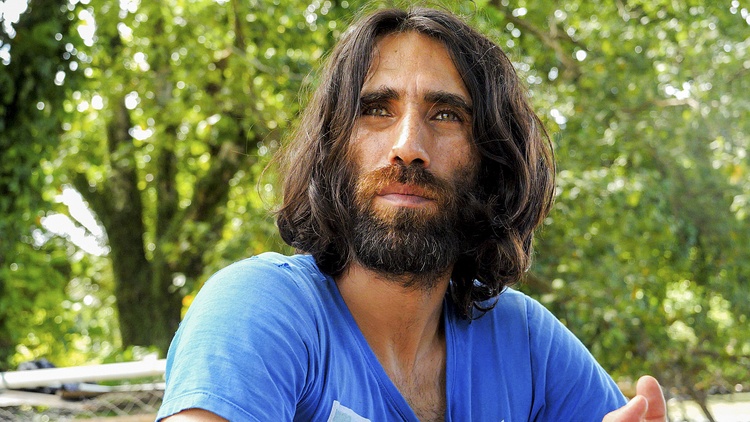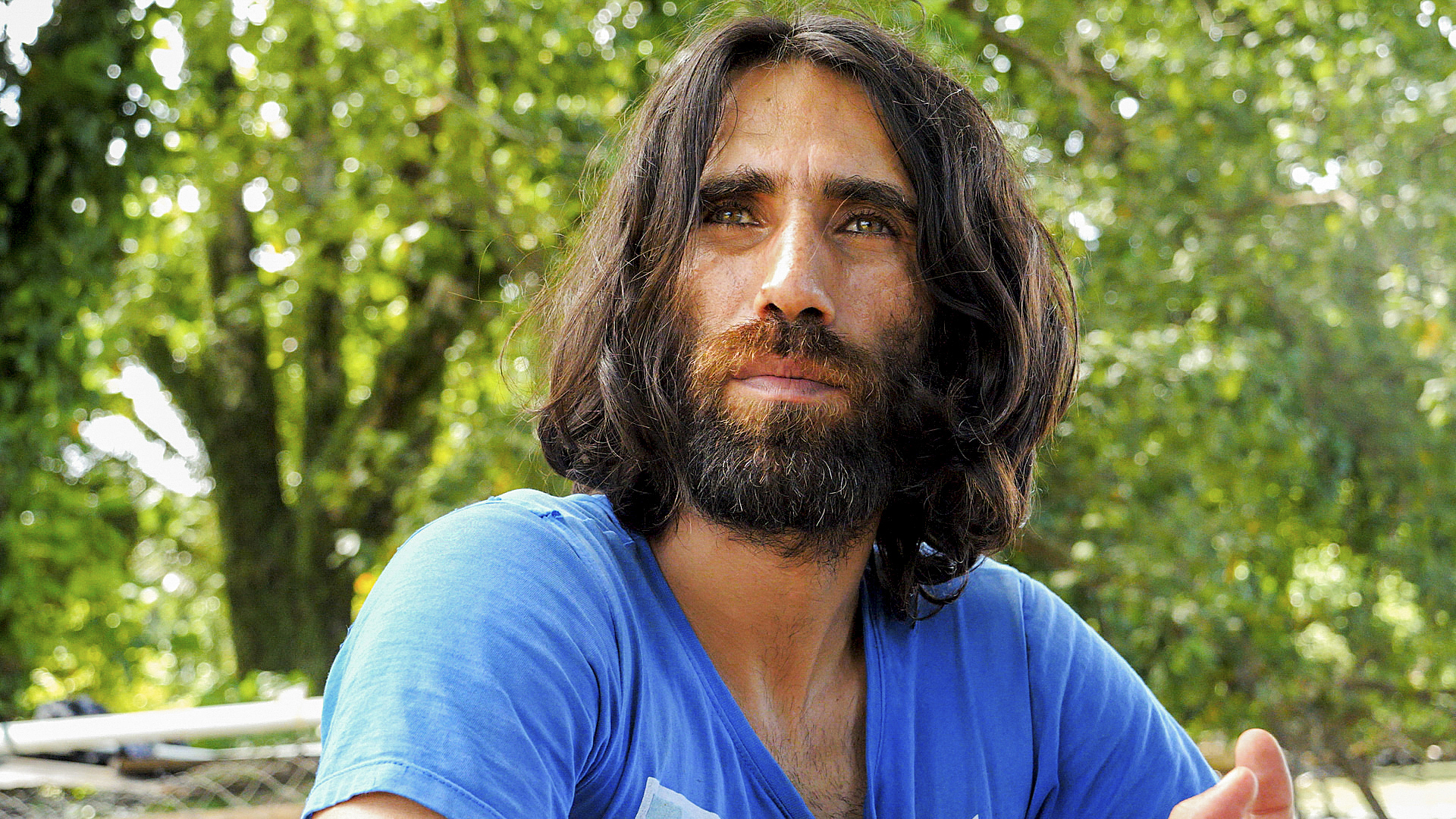He is also a writer and film producer, who was forced to flee Iran after being prosecuted for his journalism and his activism in defending the Kurdish culture.
Since being detained and transferred to Manus Island in 2013, Boochani has built a network of contacts in Australia and become the voice of the controversial detention centre through his writing.
Boochani has penned dozens of articles for newspapers such as The Age and The Saturday Paper, communicating via Twitter.
Despite the conditions he finds himself living in, Boochani has won many awards and prizes for his journalism and co-directed a documentary which was filmed with his mobile phone.
More recently, he published his first book, No Friend but the Mountains: Writing from Manus Prison, which depicts a vivid portrait through five years of incarceration and exile.
The evocative novel won the prestigious Anna Politkovskaya Award, named after the Russian journalist who was killed in Moscow in 2006, earlier this month in the northern Italian city of Ferrara.
The award is bestowed by Italian magazine Internazionale every year during the Internazionale festival to recognise excellence in investigative reporting.
The prize was accepted by Omid Tofighian, the lecturer, researcher and community advocate who translated Boochani’s book.
Obviously, Boochani was unable to personally accept the award, just as he was unable to attend book launches, as he’s still held in what he describes as “hell”.
Manus is a remote tropical island situated around 250 kilometres north of Papua New Guinea.
It’s also “home” to around 1000 asylum seekers who fled their own countries for various reasons.
In 2013, the Abbott government implemented a “zero tolerance” posture towards illegal boat arrivals in Australia, in which any illegal asylum seekers arriving by boat would be sent to detention centres on Manus Island or Nauru, an independent republic.
The policy was aimed at deterring other refugees from making similar journeys.
Boochani explained that those on Manus Island are cut off from the outside world, hidden and isolated from the rest of society.
In fact, the author is forced to use WhatsApp to communicate with anyone outside the confines of Manus, and also had to use the platform to write his book.
Boochani laboriously tapped out the text on a mobile phone and sent it to the outside world over a five-year period.
“The main reason I wrote this book on my phone, and send it out bit by bit, was really that I didn’t feel safe with the guards and authorities,” Boochani told Guardian Australia.
“Because they, at any time, could attack our room and take our property.”
In an interview with Il Globo – which was also conducted on WhatsApp – Boochani explained that he is now among around 200 people held at the East Lorengau camp, which is one of the three camps that asylum seekers on Manus were transferred to a year ago after the closure of other centres.
“The situation is the same as before and still we are living in limbo and an uncertain situation,” he said.
“We don’t know when we will get freedom... we are so tired of living as hostages.”
During the 2016 electoral campaign, Boochani was invited by the ABC to ask a question of then prime minister Malcolm Turnbull on live television, and so he asked: “What is my crime?”
It’s a question he continues to ask, but which is yet to receive a response.
During his time on Manus, writing has helped Boochani survive.
The beginning of the book depicts the perilous journey that Boochani and other refugees had to make to get from Indonesia to Australia.
Boochani recalls being rescued by an English cargo ship, then handed to the Australian navy and transferred to Christmas Island.
It was just days after the new laws on asylum seekers arriving by boat had been passed.
What follows is an account of a man in limbo, in an isolated place where neither journalists, nor lawyers are allowed to enter.
It’s a story of the living conditions Boochani and others were forced into, the confusion they felt, the “psychological torture” they experienced and the way they were all considered “terrorists” by guards and local people.
Boochani writes of how the prisoners’ days were defined by queues: a queue for food, for a shower, for the telephone, for a cigarette.
Then there’s the account of how Boochani had to sell cigarettes and clothes to have a phone smuggled into the prison, with guards confiscating it from him twice, forcing him to start all over again.
Boochani is thrilled his work has been successfully shared with the rest of the world and has reached so many people already.
“We have had more than 20 events and book launches across Australia and will have more in November and the coming months,” he said.
“We have received a huge response from Australian society and it shows that people really want to know what their government has done on Manus and Nauru.”
Boochani asked us if we were familiar with Primo Levi’s If This Is a Man, which recalls Levi’s incarceration in the Auschwitz concentration camp during World War II.
Boochani is reading Levi’s famous text at the moment and admits that while the two men write about vastly different experiences, the underlying message is the same: that freedom is our most precious possession.












